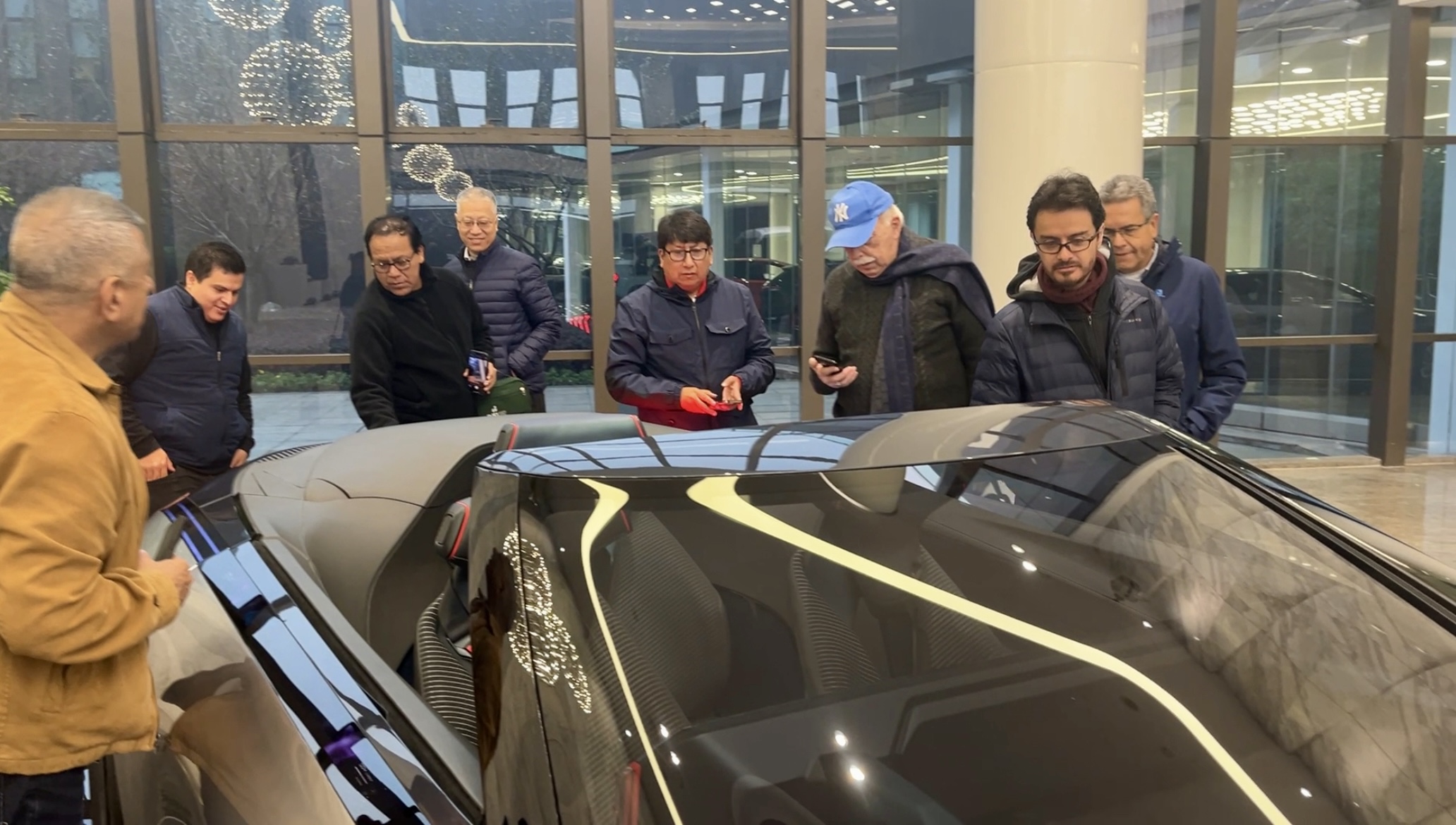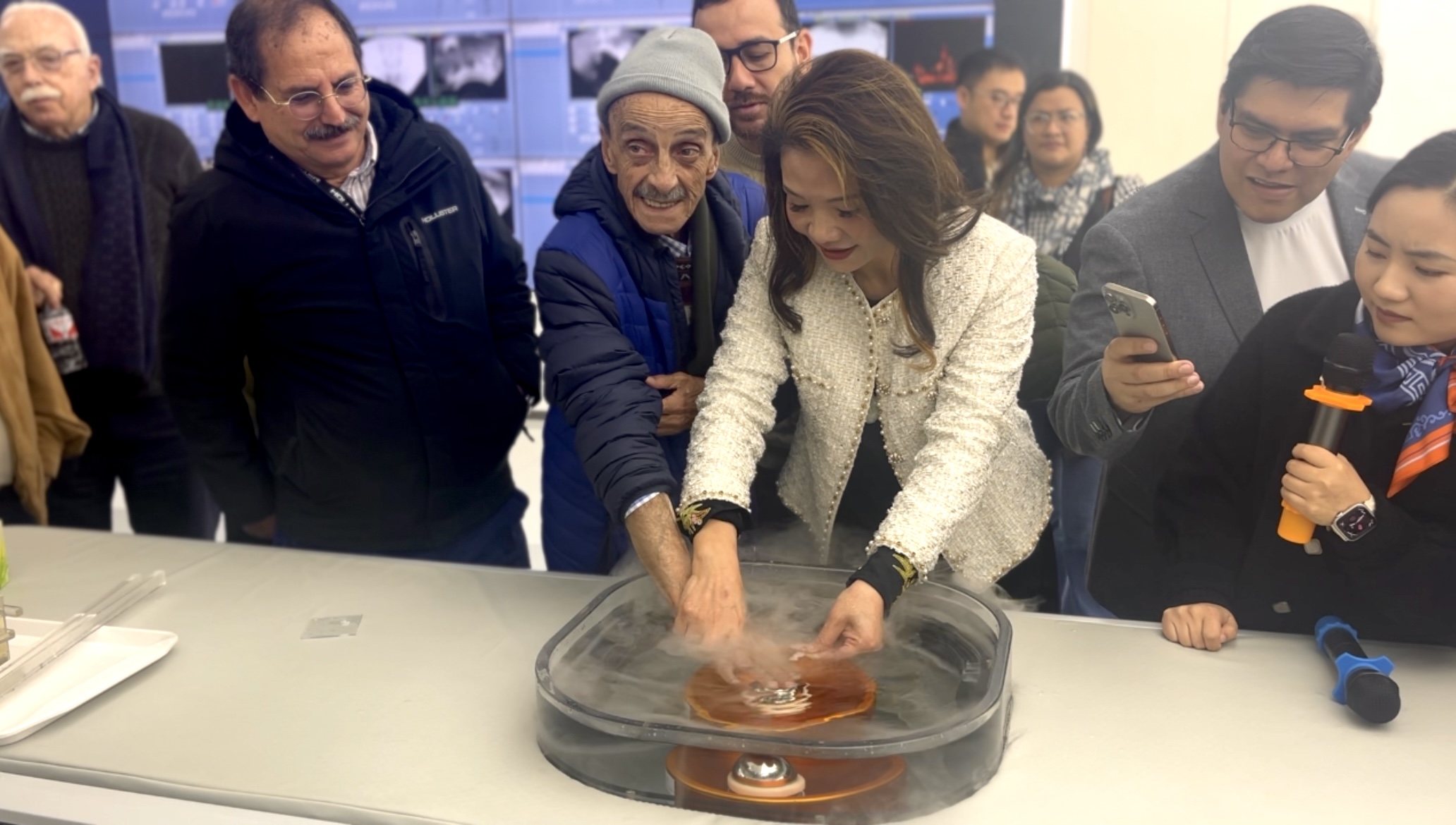 Bridging News
Bridging News
Latin American Delegation Tours SW China's Chongqing, Lauding Tech Advances
Chongqing - On December 6, a delegation of political parties from Colombia, Ecuador and Peru visited Chongqing Liangjiang New Area in Southwest China. During their tour of Changan Auto's new energy vehicles (NEVs) facility, Waldemar Cerrón, Secretary General of Peru Libre (PPN) and a member of the delegation, commended the advanced technology of the "Chongqing-made" NEVs.
Changan Auto, a leading NEV manufacturer in Chongqing, hosted the delegation at its Global Research and Development Center. The visitors were drawn to the NEVs on display in the showroom, where they eagerly took photos, sat in the driver’s seats, and explored the vehicles’ features with great interest.
 Several delegation members are visiting a high-tech car model at Changan Auto's Global Research and Development Center. (Photo/Huxin Luo)
Several delegation members are visiting a high-tech car model at Changan Auto's Global Research and Development Center. (Photo/Huxin Luo)
After exploring these NEV models, Cerrón noted that Changan Auto had already entered the Peruvian market. He emphasized that the recently-opened Chancay Port, a collaborative port project between China and Peru, would improve the direct and efficient delivery of Changan's vehicles to Peru. "Through mutual cooperation, these vehicles will become accessible to many Peruvians," Cerrón said.
During his visit, Cerrón frequently inquired about key technical aspects, such as charging times and the vehicles' driving range. He highlighted that Peru has already enacted laws allowing electric vehicles to operate on the roads.
However, "the major challenge we face is the battery life." He further explained that current electric vehicles in Peru suffer from limited range and long charging times. "We hope that through mutual cooperation in technology, we can resolve the battery issues," Cerrón added.
Chongqing-made NEV brands are also encountering challenges in gaining acceptance among consumers in other Andean countries.
Nicole Saca, National Assembly Member of the National Democratic Action, noted that while Changan Auto has entered the Ecuadorian market, local consumers remain deeply loyal to the mainstream car brands already dominating the market. She emphasized that Changan Auto will need to work harder to increase its market acceptance in Ecuador.
The delegation also visited Chongqing Haifu Medical Technology Co. Ltd. (Haifu) to learn about its advanced High-Intensity Focused Ultrasound (HIFU) technology. This innovative method uses external ultrasound waves to target internal disease sites, generating intense heat to ablate the affected area in a single treatment precisely.
During a simulated demonstration, the delegation observed the HIFU treatment device in action and experienced how focused ultrasound penetrated the palm to ablate an acrylic sheet. They were impressed by the technology's precision and effectiveness.
 A delegation member is experiencing how focused ultrasound penetrates the palm to ablate an acrylic sheet at Haifu. (Photo/Huxin Luo)
A delegation member is experiencing how focused ultrasound penetrates the palm to ablate an acrylic sheet at Haifu. (Photo/Huxin Luo)
David Villamar, Secretary of International Relations of the Citizen Revolution Movement, said that he had never heard of ultrasound-based ablation technology as Ecuador is only familiar with more invasive methods.
"I hope the cost of this technology continues to decrease, so it becomes accessible to more people of different income levels," Villamar added.
 Related Stories
Related Stories